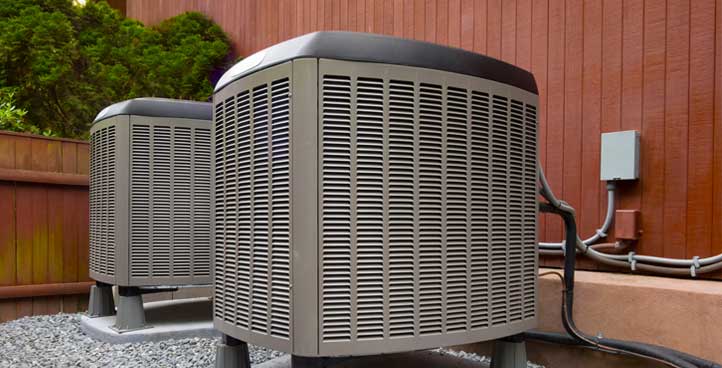Flooded AC units are common in Florida and trying to start one back up after it has been affected by a hurricane or flood can cost you thousands if you don’t handle the situation correctly. Air cooling system problems don’t always show signs of deteriorating, which is why it’s important to have your unit checked out by a certified technician to have everything assessed before you turn it back on. At Ambrose Air Inc, we put our customers first. We strive to be the best Orlando AC repair company by providing quality services, great customer service, and affordable prices.
One of the first things you should do once you suspect water damage in your air-conditioner is turn off the electricity in your home. This will prevent harm to you and prevent added damage to your AC unit. All it takes to turn off your electricity is a simple task of switching off the breaker in your fuse box.
Furthermore, an outdoor unit of your AC system is meant to withstand high amounts of rain and humidity, but it’s not intended to be completely submerged in flood waters. So make sure to turn off your electricity to avoid any more damage to your unit or house.
After a flood, you will always need to assess the entire system to see what kind of damage has been done. It’s imperative that you check the wires, connectors, and electrical components for corrosion. Also, check for broken seals and water damage on the condenser fan motor.
Running your air conditioner after it has been damaged in a flood can pose a severe threat to your AC system, your health, and your home. Even if you think your system is okay, you should still have a professional come out and fine-tune everything before you try and use it.
While your AC unit was exposed to flooding or a hurricane, it is likely some of the equipment will need to be repaired or replaced. Here is a small list of equipment you should have inspected by an HVAC technician.
Furnaces and Boilers
If there are any signs that floodwater has reached your furnace or boiler, you need to have it inspected by a licensed professional. Corrosion can begin inside, and you may not notice the damage if the outside of the device is clean and dry.
Heat Pumps and Air Conditioners
Split systems use power and control wiring between the indoor and outdoor units, as well as, piping for whichever refrigerant you’re using through your flow system. If a flood or hurricane has caused either the outdoor or indoor units to become repositioned, even just a little; there could be a chance you have a potential refrigerant leak. If you do have a leak, this will require significant repairs or a full replacement.
If the refrigerant happens to remain intact after a flood or hurricane, your entire system should be cleaned, dried, and disinfected. In this situation, you should have an HVAC technician check the indoor and outdoor connections and all of the control circuits.
Clogged Condenser Coils
High winds that accompany a hurricane can often lead to excessive airborne dust and debris that can clog up your aluminum fins within your HVAC system’s condenser coil. When a storm passes, you may find the fins of your condenser coil filled with dirt, dust, grass, leaves, or other objects from around your house.
If your coils become clog, this restriction can reduce the potential heat transfer from the refrigerant to the ambient air, which prevents the HVAC’s system’s ability to cool your home. Fortunately, if your condenser coil does get clogged, it is relatively easy to fix. All you have to have to do is clean the coils using a condenser coil cleaner and a standard hose. If this is done correctly, you can sufficiently restore your condensing back to its normal operation.
In conclusion, if your AC unit has endured any damage from either a flood or hurricane, take the necessary steps to ensure the proper maintenance of your HVAC and the safety of your household. Although some repairs can be a simple repair, it’s still always a good idea to have an expert technician asses your HVAC unit to prevent any further damage.

Pat Ambrose has over 40 years of experience in the HVAC industry, serving Central Florida. He tested for and received his class B air conditioning license almost 35 years ago and then improved that to a class A license in the late 90s. Pat and his wife started their own HVAC business in the early 90s, serving Central Florida. Pat still serves as the president of Ambrose Air, Inc., where he works as the chief operating officer. Over his years in business, Pat has served as the president of both the local association (ACCA/CF) and the state association of contractors (FRACCA). His expertise has helped his customers on many occasions, solving air conditioning problems that others had missed.


